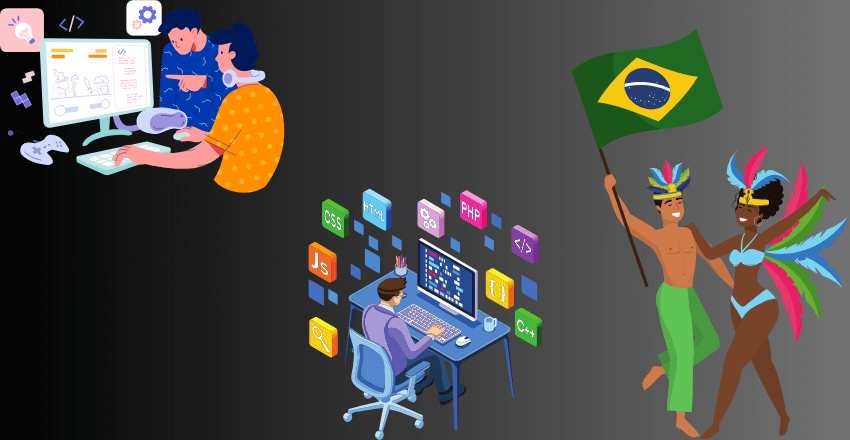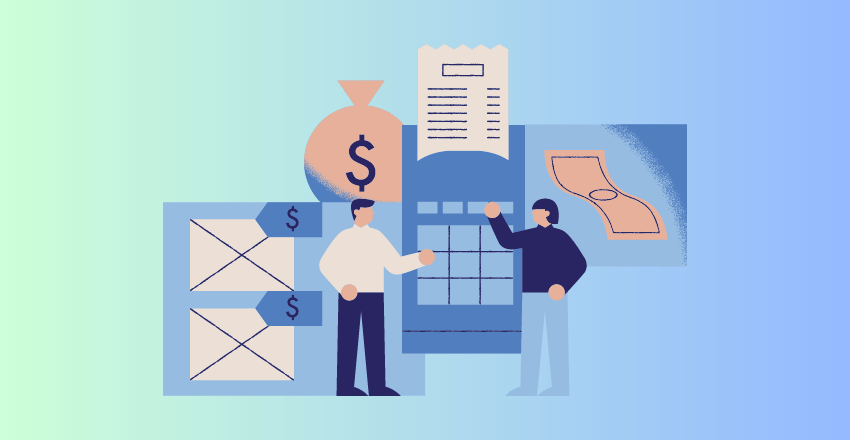Discover Application Engineer questions that will test your problem-solving skills. Prepare for your next interview with these key questions.
. Are you looking to ace your application engineer interview?
Here are the key questions you need to be ready for.
The field of application engineering is highly competitive, and being well-prepared for your interview is crucial.
By familiarizing yourself with these key interview questions, you can confidently showcase your knowledge, skills, and experience during your application engineer interview.
Exploring Career Motivation
Gain insight into the candidate’s motivations for pursuing a career as an application engineer with these questions.
1. What led you to become an application engineer?
By asking this question, you can understand the candidate’s motivations and what drew them to the field. It allows you to gauge their passion for application engineering and their level of commitment.
2. What programming languages are you most comfortable with?
This question helps assess the candidate’s technical proficiency and expertise. Their knowledge of different programming languages can indicate their versatility and adaptability to various projects.
3. Can you explain the difference between front-end and back-end development?
Understanding the differences between front-end and back-end development is crucial for application engineers. By asking this question, you can evaluate the candidate’s understanding of these concepts and their ability to work on different aspects of software development.
4. How do you handle debugging code?
Debugging is an essential skill for application engineers. This question allows you to assess the candidate’s problem-solving abilities when encountering code issues and their approach to finding and fixing bugs efficiently.
5. Can you give an example of a challenging project you’ve worked on and how you overcame any obstacles?
Through this question, you can assess the candidate’s problem-solving skills and their ability to handle complex projects. It provides insight into their creative thinking, adaptability, and perseverance when faced with challenges.
Common Application Engineer Interview Questions
During an interview for an application engineer position, candidates can expect a range of questions that assess their technical proficiency, problem-solving skills, and overall fit for the role. Here are some common interview questions to consider:
- How do you stay up-to-date with the latest technology trends and advancements?
- What is your experience with Agile methodology?
- Have you worked with version control systems like Git? If so, can you describe your experience?
- Can you explain the difference between a compiler and an interpreter?
- How do you prioritize tasks when working on multiple projects?
In addition to these questions, it is crucial to tailor the interview to the specific needs of your company and the role you are hiring for. By asking the right questions, you can gain valuable insights into the candidate’s technical skills, problem-solving abilities, and their motivation to pursue a career as an application engineer.
| Question | Description |
|---|---|
| What led you to become an application engineer? | Assess candidate’s motivations and passion for the field. |
| What programming languages are you most comfortable with? | Evaluate candidate’s technical proficiency and flexibility. |
| Can you explain the difference between front-end and back-end development? | Assess candidate’s understanding of different aspects of software development. |
| How do you handle debugging code? | Evaluate candidate’s problem-solving skills in resolving code issues. |
| Can you give an example of a challenging project you’ve worked on and how you overcame any obstacles? | Assess candidate’s problem-solving abilities, adaptability, and perseverance. |
By incorporating these questions into your interview process, you can ensure a comprehensive assessment of each candidate’s qualifications and suitability for the role of an application engineer.
Technical Language Proficiency
Assess the candidate’s comfort level with different programming languages using these questions:
- What programming languages are you most comfortable with?
- Can you explain the difference between front-end and back-end development?
- Have you worked with version control systems like Git? If so, can you describe your experience?
- What is your experience with unit testing?
- Can you explain the concept of design patterns and give an example?
These questions are designed to evaluate the candidate’s knowledge and expertise in programming languages, their ability to differentiate between front-end and back-end development, and their experience with version control systems and unit testing.
Additionally, the candidate’s understanding of design patterns and their ability to explain and provide an example will be assessed.
By asking these questions, hiring managers can gain insights into the candidate’s technical language proficiency, allowing them to gauge their suitability for the role of an application engineer.
| Question | Key Points |
|---|---|
| What programming languages are you most comfortable with? | Assesses candidate’s preferred programming languages. |
| Can you explain the difference between front-end and back-end development? | Evaluates candidate’s understanding of front-end and back-end concepts. |
| Have you worked with version control systems like Git? If so, can you describe your experience? | Examines candidate’s familiarity and experience with version control systems, specifically Git. |
| What is your experience with unit testing? | Determines candidate’s knowledge and practical experience in unit testing. |
| Can you explain the concept of design patterns and give an example? | Tests candidate’s understanding of design patterns and their ability to provide an example. |
Understanding Development Differences
Determine the candidate’s grasp on front-end and back-end development with these interview questions:
What is the difference between front-end and back-end development?
The candidate should be able to explain that front-end development focuses on the visible and interactive elements of a website or application, such as the user interface and user experience. Back-end development, on the other hand, pertains to the server-side of the application, dealing with database management, server configuration, and handling user requests.
Can you describe the tools or technologies commonly used in front-end development?
The candidate should demonstrate knowledge of front-end technologies, such as HTML, CSS, and JavaScript. They should also be familiar with frameworks like React, Angular, or Vue.js, and have experience with responsive design principles and cross-browser compatibility.
What are the key components of back-end development?
The candidate should mention the use of server-side programming languages like Python, Java, or PHP, as well as frameworks such as Node.js or Django. They should also be familiar with working with databases, APIs, and server configuration.
How do front-end and back-end development work together?
The candidate should understand that front-end and back-end development are interconnected and rely on each other to create a functional application. They should mention concepts like API integration, data transfer, and communication between the front-end and back-end layers.
By evaluating the candidate’s answers to these questions, you can gain insights into their understanding of front-end and back-end development, as well as their experience and proficiency in the respective areas.
| Question | Expected Answer | Notes |
|---|---|---|
| What is the difference between front-end and back-end development? | The candidate should mention the focus on user interface and user experience for front-end development, while back-end development deals with server-side operations and data management. | This question assesses the candidate’s basic understanding of front-end and back-end development. |
| Can you describe the tools or technologies commonly used in front-end development? | The candidate should mention HTML, CSS, JavaScript, and possibly front-end frameworks like React or Angular. | This question evaluates the candidate’s familiarity with front-end technologies and frameworks. |
| What are the key components of back-end development? | The candidate should mention server-side programming languages, such as Python or Java, as well as frameworks like Node.js or Django. They should also be familiar with working with databases, APIs, and server configuration. | This question assesses the candidate’s knowledge of back-end technologies and concepts. |
| How do front-end and back-end development work together? | The candidate should explain that front-end and back-end development collaborate to create a functional application, with the front-end handling the user interface and the back-end managing data and server-side operations. | This question explores the candidate’s understanding of the collaboration between front-end and back-end development. |
Problem-Solving and Project Experience

Assess the candidate’s problem-solving abilities and project experience with these questions:
- Can you give an example of a challenging project you’ve worked on and how you overcame any obstacles?
- How do you approach problem-solving when working on a project?
- Can you explain the concept of dependency injection?
- Can you describe your experience with continuous testing?
- How do you approach code refactoring?
- Can you give an example of a time when you had to debug a particularly difficult issue?
Problem-solving skills are crucial for application engineers, as they often face complex challenges during projects. Candidates should be able to provide examples of how they have tackled difficult projects and overcome obstacles.
Additionally, assessing a candidate’s approach to problem-solving can give insight into their analytical thinking, creativity, and ability to think critically. Look for candidates who demonstrate a structured approach, thorough analysis, and effective problem-solving strategies.
Furthermore, understanding concepts like dependency injection and continuous testing is essential for building robust and scalable applications. Candidates should be able to explain these concepts clearly and provide examples of how they have applied them in their previous work.
| Project | Challenges | Obstacles Overcome |
|---|---|---|
| Developing a mobile banking application | Integrating complex security features, optimizing app performance | Collaborated with the security team, implemented caching mechanisms |
| Building an e-commerce website | Handling high traffic, ensuring seamless user experience | Utilized load balancing techniques, optimized database queries |
Candidates who can provide specific examples of challenging projects they have worked on and demonstrate how they overcame obstacles are more likely to have valuable problem-solving and project experience.
Staying Updated with Technology Trends
Discover how candidates keep up with evolving technology through these interview questions.
In today’s rapidly advancing world of technology, it is crucial for application engineers to stay up-to-date with the latest trends and advancements. Employers want to ensure that their candidates have a strong commitment to learning and evolving along with the industry.
Dive into these interview questions to gauge how candidates approach staying informed:
- How do you stay up-to-date with the latest technology trends and advancements?
- Can you provide examples of recent technological advancements that have caught your attention?
- What resources do you rely on to stay informed about emerging technologies?
- How do you incorporate new technologies into your work process?
- Can you discuss a time when you implemented a new technology or trend to solve a problem or improve efficiency?
- What steps do you take to ensure that you are continuously learning and adapting to new technologies?
- How do you evaluate the potential impact of new technologies on your current projects?
By asking these questions, employers can gain insight into a candidate’s dedication to professional development and their ability to adapt to changing technological landscapes. Staying updated with technology trends is essential for application engineers to remain competitive and deliver innovative solutions.
| Benefits of Staying Up-to-Date | Tips for Staying Informed |
|---|---|
|
|
Staying updated with technology trends is not just a buzzword; it is a fundamental aspect of being a successful application engineer. Through the interview questions provided, employers can assess a candidate’s enthusiasm for learning, adaptability, and ability to leverage new technologies to drive innovation. By staying informed and embracing new advancements, application engineers can thrive in their roles and contribute to the ever-evolving field of technology.
Agile Methodology and Project Management

Assess the candidate’s familiarity with Agile methodology and their ability to prioritize tasks with these questions:
- How familiar are you with Agile methodology and have you worked in Agile teams before?
- Can you explain the key principles of Agile and how they impact project management?
- Have you ever faced challenges while working in an Agile environment and how did you overcome them?
- How do you prioritize tasks when working on multiple projects simultaneously?
- What strategies do you use to ensure effective communication and collaboration within an Agile team?
Agile methodology has gained popularity in the software development industry due to its iterative and flexible approach. Employers value candidates who have experience working in Agile teams as it demonstrates their ability to adapt to changing requirements and deliver results efficiently.
During the interview, it is important to assess the candidate’s understanding of Agile principles and their practical application in project management. Look for candidates who can explain how Agile facilitates frequent communication, collaboration, and adaptability. Additionally, pay attention to their ability to prioritize tasks and manage their time effectively in fast-paced environments.
By asking these questions, you can gain valuable insights into the candidate’s experience with Agile methodology and their skills in project management, helping you make a more informed hiring decision.
| Question | Expected Answer |
|---|---|
| How familiar are you with Agile methodology and have you worked in Agile teams before? | The candidate should provide details about their experience working in Agile teams and demonstrate their understanding of Agile principles. |
| Can you explain the key principles of Agile and how they impact project management? | The candidate should be able to articulate the core principles of Agile, such as iterative development, frequent feedback, and continuous improvement. |
| Have you ever faced challenges while working in an Agile environment and how did you overcome them? | The candidate should share specific examples of challenges they have encountered and explain how they applied problem-solving skills to overcome them. |
| How do you prioritize tasks when working on multiple projects simultaneously? | The candidate should describe their approach to task prioritization, highlighting their ability to manage time effectively and meet project deadlines. |
| What strategies do you use to ensure effective communication and collaboration within an Agile team? | The candidate should outline their strategies for fostering open communication, promoting collaboration, and resolving conflicts within Agile teams. |
Version Control and Testing

Evaluate the candidate’s expertise in version control systems and testing practices with these interview questions.
A strong understanding of version control systems, such as Git, is crucial for application engineers. Candidates should be able to describe their experience with version control systems and how they utilize them in their development workflow. This includes the ability to explain concepts like branching, merging, and resolving conflicts.
Additionally, candidates should demonstrate knowledge of unit testing and continuous testing practices. They should be able to explain how they approach writing and executing unit tests, as well as how they incorporate continuous testing into their development process. Questions may also delve into specific testing frameworks or tools that the candidate has used.
An example of an interview question related to version control and testing could be:
Can you describe a situation where version control helped you and your team collaborate effectively on a project? How did you handle conflicts and ensure the stability of the codebase?
| Interview Question | Description |
|---|---|
| Have you worked with version control systems like Git? If so, can you describe your experience? | This question assesses the candidate’s familiarity with version control systems. |
| What is your experience with unit testing? | This question evaluates the candidate’s knowledge and proficiency in writing and executing unit tests. |
| Can you describe your experience with continuous testing? | This question explores the candidate’s understanding and experience with continuous testing practices. |
Software Performance Optimization and Design Patterns

Gauge the candidate’s skills in optimizing software performance and implementing design patterns with these questions.
1. How do you approach optimizing an application’s performance? Are there any specific techniques or tools you use?
2. Can you give an example of a time when you had to debug a particularly difficult issue related to performance? How did you identify and resolve the problem?
3. Can you explain the concept of design patterns and give an example of how you have implemented them in your previous projects?
4. How do you ensure that an application meets the needs of its intended users while still maintaining optimal performance?
5. Can you describe your experience with continuous testing and how it contributes to software performance optimization?
6. Have you encountered any common performance bottlenecks in your previous projects, such as inefficient database queries or excessive resource utilization? How did you address these issues?
Table: Common Design Patterns
| Design Pattern | Description |
|---|---|
| Singleton | Restricts the instantiation of a class to a single object, ensuring that only one instance of the class exists in the application. |
| Factory | Creates objects without exposing the instantiation logic to the client and refers to the newly created object using a common interface. |
| Observer | Defines a one-to-many dependency between objects, so that when one object changes state, all its dependents are notified and updated automatically. |
| Decorator | Dynamically adds new functionality to an existing object without altering its structure, providing a flexible alternative to subclassing. |
| Strategy | Defines a family of interchangeable algorithms, encapsulates each one, and makes them interchangeable, allowing the algorithm to vary independently from clients that use it. |
It is important for application engineers to possess a deep understanding of software performance optimization techniques and design patterns. These skills not only contribute to the efficient functioning of applications but also improve code maintainability and scalability. By asking these targeted questions, interviewers can assess a candidate’s ability to optimize software performance and implement design patterns in real-world scenarios.
Containerization and Docker

Assess the candidate’s knowledge and experience with containerization and Docker through these interview questions.
1. Can you describe your experience with containerization and Docker? How have you utilized these technologies in your previous projects?
2. What are the key benefits of containerization and how does Docker facilitate the process?
3. How do you approach managing and orchestrating multiple containers within a Docker environment?
4. Have you encountered any challenges or limitations while working with Docker? If so, how did you overcome them?
5. Can you explain the concept of containerization to someone unfamiliar with the term? Provide an example to illustrate its significance in software development.
6. How do you ensure the security and scalability of containerized applications? What best practices do you follow?
7. Have you worked with container orchestration tools like Kubernetes? If yes, describe your experience and how it complements Docker.
8. Can you discuss the role of Docker in the CI/CD (Continuous Integration/Continuous Deployment) pipeline? How does it contribute to automation and efficiency?
9. What considerations do you take into account when designing and implementing a Docker-based infrastructure?
These interview questions will help assess the candidate’s knowledge and experience with containerization and Docker, enabling you to evaluate their proficiency in utilizing these technologies effectively in application development.
Source Links
https://questionsgems.com/discover-application-engineer-interview-questions/
https://itsourcecode.com/blogs/discover-application-engineer-interview-questions-with-answer/












